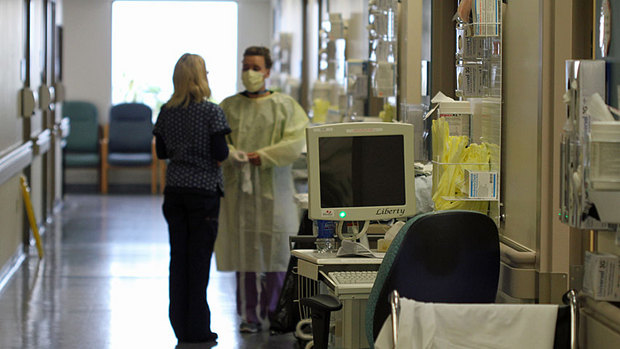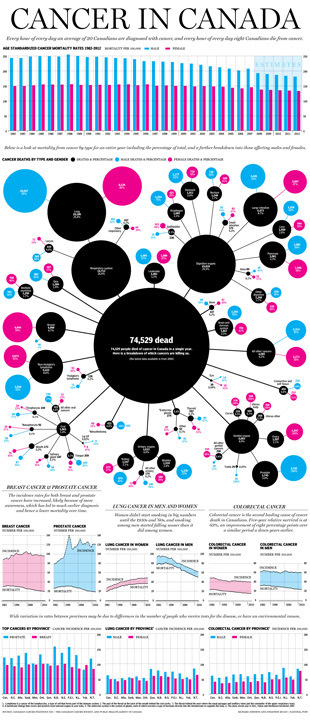Cancer
In The simple act of truth in the face of incurable cancer, Elaine Waples speaks powerfully of what is important when faced with knowing that one will die. It all comes down to the people one loves. Quote:
The hard things that tug at the heart and create the pain are the unbearable truths to parents that they will lose a child; to siblings that the person they’ve known their entire lives will be gone; to children that they must overcome and move on. They convey a clear and undeniable message to doctors that they must relinquish the desire to salvage, fix and prolong.
In a similar vein, a doctor recalls how sharing his loss helped a patient come to terms with the terminal illness of her husband in Sharing my loss helped a patient’s loss.
This story surprised me: Suicide rates may be higher in stem cell transplant recipients, detailing the results of a massive European study of close to 300,000 stem cell recipients (both auto and allo). Delving into the details, some of the findings are more understandable: higher suicide rates among those suffering from GvHD, and higher relapse rates among those who have attempted suicide. But the overall findings still surprise me given the awe, wonder and gratitude that most of us feel when given another chance at life.
Hard to believe, but More Than a Quarter of Melanoma Survivors Skip Sunscreen, Study Finds. While the experts try to find excuses (more education needed, perhaps tanning is addictive), I am more drawn to a simpler explanation: human stupidity.
A good overview of progress in cancer research and treatment by Dr. Len Lichtenfeld of the American Cancer Society, more optimistic than usual, in Is Cancer Research and Treatment Moving From Evolution To Revolution?
A good piece in Le Devoir by Marika Audet-Lapointe, Libre-opinion – Cancer: abandonnons les métaphores guerrières:
Alors, s’il y a lieu de livrer un combat, d’accord, j’accepte, et je revendique le droit de la personne touchée par le cancer de choisir sa façon de composer avec le défi du cancer. Que chaque personne puisse vivre sa vie jusqu’au bout, comme il le souhaite. Qu’une fois rendu au bout du sursis que représente la vie, il puisse se tourner vers son miroir intérieur et se dire avec un grand sourire : « Combien de montagnes, de lac et de défis j’ai surmontés, et combien je suis heureux et fier de porter en moi la certitude d’avoir savouré la vie, ma vie, en harmonie avec mes valeurs et mes convictions. »
Jim Salwitz shares how he and other oncologists deliver bad news in How doctors give bad news, and puts it into perspective:
This takes us back the vital question asked by my friend; how does a doctor prepare emotionally to give bad news? I think the answer is that the physician prepares by getting ready to do his job well. If he does a good job delivering the bad news, than he has helped the patient and family move forward in a difficult time of their lives. Done well, this is satisfying and important work. While at times it can be sad and even tragic to work with patients who are experiencing overwhelming health events, if the doctor can guide them through such times, then some element of suffering can be avoided. The healing of suffering, giving the chance to cope and preserving hope, gives every doctor peace and solace.
Health and Wellness
Nearly 25% of nurses wouldn’t recommend their hospital reports on a survey of Canadian nurses. While the figure is alarming (somewhat attenuated that almost 90 percent think safety measures are adequate), I wonder whether if you asked nurses what alternative hospitals they would recommend if they would be able to come up with an answer (we generally know our own environment, strength and weaknesses, not other environments). It also tells me, which I already know, that nurses, like doctors, are always dissatisfied with the quality of care they can provide, a good sign as it helps prevent complacency and mistakes.
A more useful survey is CBC rates 10 hospitals best in Canada, as it provides hospital ratings. Of course, the rating system used can bias the results, but transparency does focus the mind on where improvements may be required. I checked out the ratings for The Ottawa Hospital (where I received my care) and it received a B. I would rate it higher for the cancer care I received; interestingly, it received highest ratings for being patient friendly.
Experts blast Health Canada’s approach to sodium reduction points out that voluntary guidelines without transparency and monitoring are likely to be little more than symbolic with little effectiveness. Another critique of government policy comes from André Picard in Tories deliver a hollow boast on health-care spending, noting how federal health policy has weakened a national healthcare consistency and delivery.
My Name is Roger, and I’m an alcoholic is about Roger Ebert’s experience with AA and how it helped him (and others) with his alcoholism, and a reminder of just how powerful support groups can be.
Lastly, Getting a Brain Boost Through Exercise reminds us of the importance of exercise to reducing memory loss and improve cognitive function, ideally through a mix of aerobics and strength training.
Other
A two-minute video of earth from space from a variety of perspectives.
I have featured earlier some of Christian Wyman’s reflections on religion and Christianity (see HERE), and Andrew Sullivan’s take on Wyman’s book On Christian Wiman’s “My Bright Abyss” captures the questioning better than some of the more secular reviews:
In short, Wiman’s book is the beginning of a conversation we very much need to have, and he clears away so much of the accumulated ridiculousness that has grown-up around discussions of religion in this country. He clarifies the questions we should be asking more than he offers “solutions.” Please read this book – for now, I only can urge that you approach this elegant, difficult testimony to what faith – always mingled with doubt, and always seeking to connect with lived experience – can mean in the modern world with honesty and an open heart. It truly is an essential book for our times.
Not sure whether I will read the book now, but one on my list.
A nice take on happiness in Happiness, Beyond the Data by Gary Cutting, in which he postulates four factors as being key to happiness: good luck, fulfilling work, the ‘proper pursuit’ of pleasure, and human love.
















